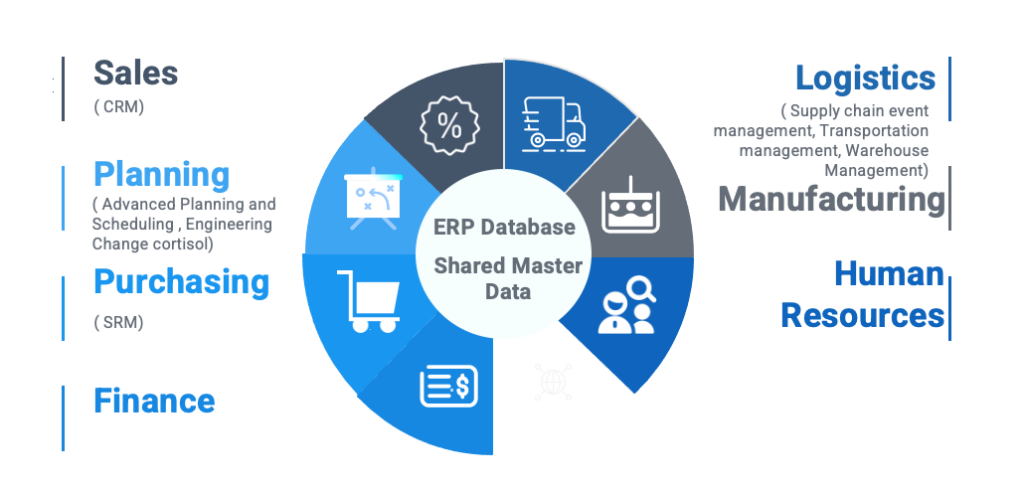Many business activities, including contract deployment, compliance management, and measurement, involve the use of enterprise resources planning (ERP) and supplier relationship management (SRM) systems.
ERP systems are designed to help businesses organize, define, standardize, plan, and control their ongoing functions by providing an integrated framework of data and processes. Supplier management is often a part of ERP systems. On the other hand, SRM is a comprehensive approach to evaluating an organization’s vendors to streamline and improve processes between a business and its suppliers of goods and services.
Effective SRM involves cultivating positive relationships with suppliers, evaluating supplier performance, and using appropriate technology to automate procure-to-pay processes. ERP and SRM capabilities and tasks are correlated.
For instance, ERP systems use a shared database that includes templates, contracts, and controlled access with security, while SRM includes portals that allow suppliers to view their measurements instead of waiting for compliance reviews. The ability to view measurements as needed enables continuous improvements as measurements and key performance indicators (KPIs) are fully understood.
The illustration depicts that SRM encompasses purchasing and contract administration. Some of the recommended practices for contract administration are:
- Templates
- Contracts in one place
- Security and controlled access
- Compliance reviews
- Automate communications
- Set and measure contract management KPIs
- Continuously improve

